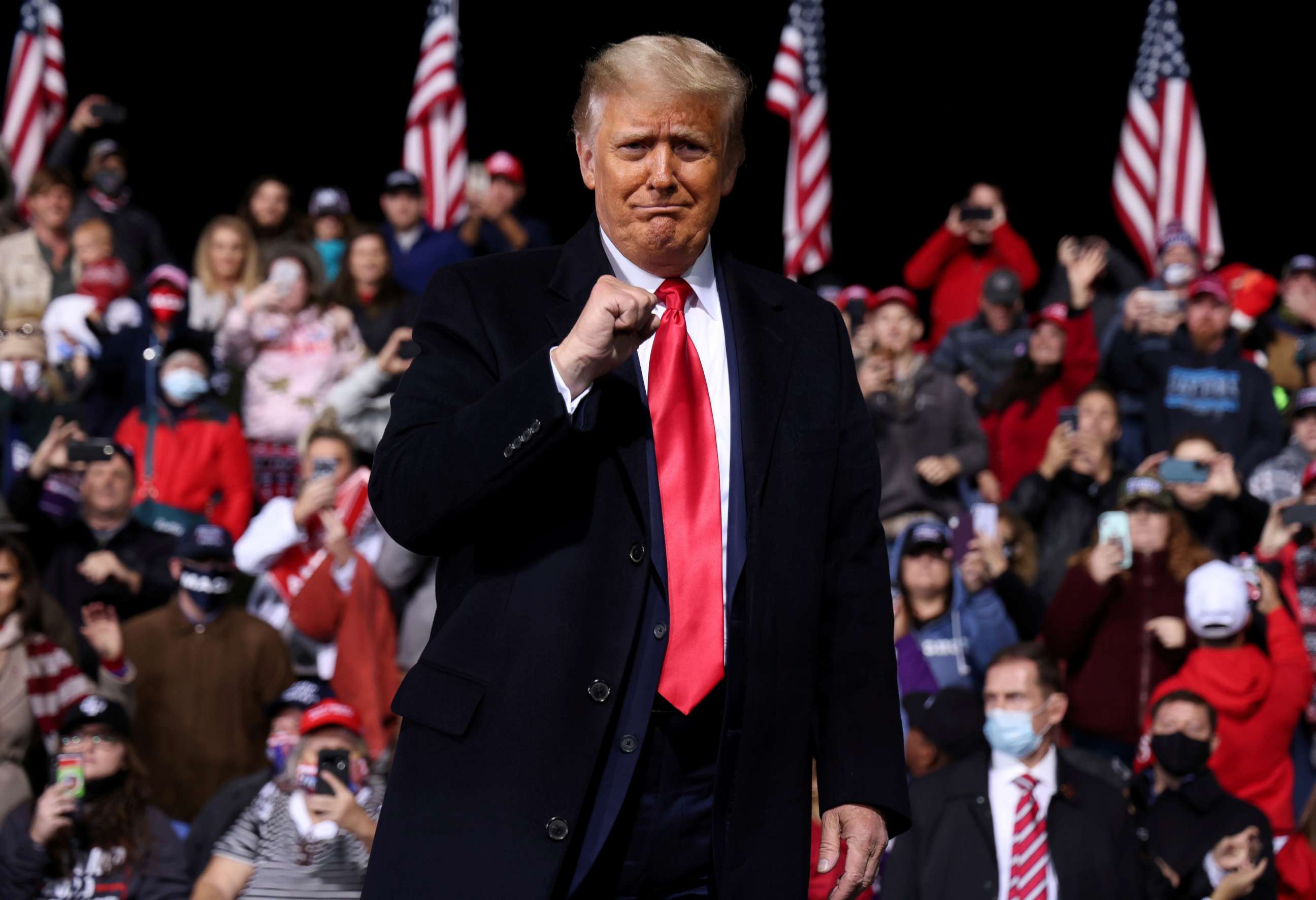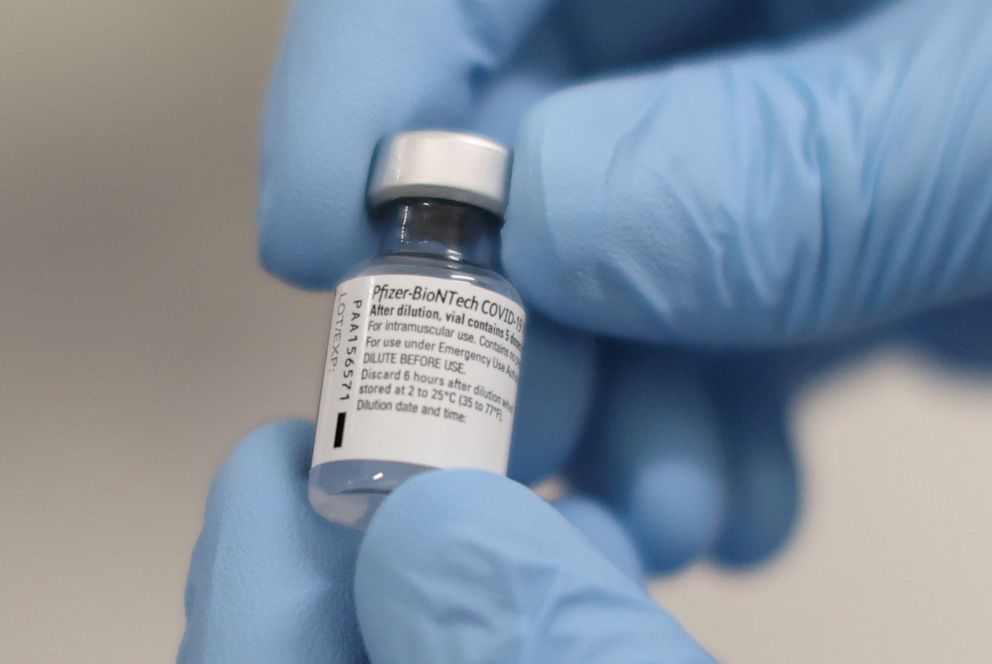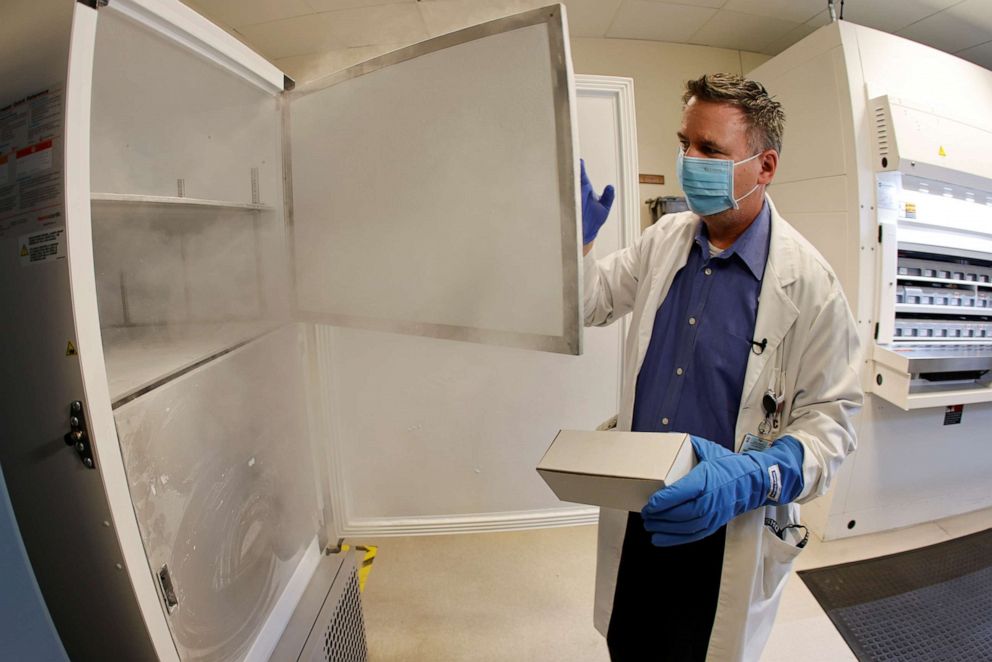Electoral College voting brings crossroads for Trump and his GOP: The Note
Trump looms large over the future of the Republican Party.
The TAKE with Rick Klein
What do they do now – and will they still go where the president tells them, if the "Kraken" leads to a crack-up?
One could argue, until this Monday – the third week in December -- that it carried no real cost for Republicans to support President Donald Trump’s wild and baseless claims about the election he lost.

That all changes Monday, when Electoral College votes are cast in 50 states plus the District of Columbia. Starting at 10 a.m. ET and rolling through the day, electors will formally make Joe Biden the president-elect, after Trump’s legal and political avenues have all fallen away.
Trump still isn’t conceding, and is still attacking. GOP realities are already changing with the realization that backing Trump now means delegitimizing the election’s processes and outcome – or worse.
Republican elected officials facing threats for doing their jobs or upholding their oaths and acknowledging Biden’s victory – a group that includes the governors of Arizona and Georgia – are already getting some company. They will likely get more in the days ahead.
“People are going to have to stand up and start to say these things,” former Gov. Chris Christie, a close ally of the president, said Sunday on ABC’s “This Week,” after denouncing Trump’s legal efforts as “an absurdity.”
Trump’s final rejection at the Supreme Court brought wild scenes of protests over the weekend, and even the suggestion by a state party chair that Trump-loyal states may secede from the union.
Trump looms large over the future of the Republican Party. But his interests and those of his party are already diverging.
The RUNDOWN with Karen Travers and MaryAlice Parks
It will be a balancing act for sure. Leaders and celebrities publicly showing their support for and comfort with the new vaccine could go a long way to ease any early jitters.

But is there a distinction between setting an example and jumping the line?
Reporting overnight from the New York Times suggested that some senior government officials across the federal government may be offered some of the first newly manufactured doses of the vaccine. Independent advisers to the Centers for Disease Control and Prevention recommend initial doses be provided to health care personnel and nursing home residents. We know too that some federal agencies planned to get doses to vaccinate health care personnel as well.
The ethical questions in this moment are heavy.
The country needs healthy public servants and officials to maintain a stable federal government. But how should those priorities stack up against the urgent need to keep health care workers safe? Would it be wrong for the White House or other government leaders to deem themselves essential and a priority in this moment?
While it could be fair to argue that vaccinated senior government officials are key for national security, has the behavior from the West Wing and Trump weakened that argument or made it a harder political sell?
For months, while Americans canceled weddings and funerals to abide by guidelines from experts, leaders in the White House snubbed CDC recommendations around wearing masks and social distancing. Where were the national security concerns when the White House was throwing packed Christmas parties, despite government doctors and scientists urging Americans not to hold large family gatherings?
The fact is, these vaccines are still scarce right now. It will be weeks and maybe even months before all health care workers, firefighters, police officers and teachers have shots made available for them.
The TIP with Kendall Karson
Gaining the government's stamp of emergency approval for a COVID-19 vaccine might no longer be a long-awaited hope, but the challenges don't end there.
The vaccine's success is predicated on enough of the country being inoculated to stem the spread of an aggressive and unyielding virus. Most Americans are leaning towards getting the vaccine—just split on the timeline—but Democrats are nearly twice as willing as Republicans to receive the vaccine immediately—49% to 28%—in a new ABC News/Ipsos poll released Monday.

And more than four times as many Republicans as Democrats have no plans on ever getting the medical safeguard. It will be up to the incoming Biden administration to sway a weary and divided public on the vaccine, an order that might not be so tall.
The new poll finds some areas of common ground, with an equal 45% with both Democrats and Republicans open to the possibility of waiting to receive the vaccine after some time once more information is available. Both parties also agree on who should access the vaccine first. Roughly nine in 10 Democrats and Republicans consider health care workers and first responders a high priority for the vaccine.
THE PLAYLIST
ABC News' "Start Here" podcast. Monday morning’s episode features ABC News’ Eric Strauss, who tells us what to expect as Pfizer’s vaccine is shipped across the country. ABC News’ Kaylee Hartung explains how hospitals are preparing to vaccinate their employees. And ABC News Senior National correspondent Terry Moran explains why President Trump’s legal challenges to the election results could cause lasting damage to our democracy. http://apple.co/2HPocUL
WHAT YOU NEED TO KNOW TODAY
Download the ABC News app and select "The Note" as an item of interest to receive the day's sharpest political analysis.
The Note is a daily ABC News feature that highlights the day's top stories in politics. Please check back Monday for the latest.




